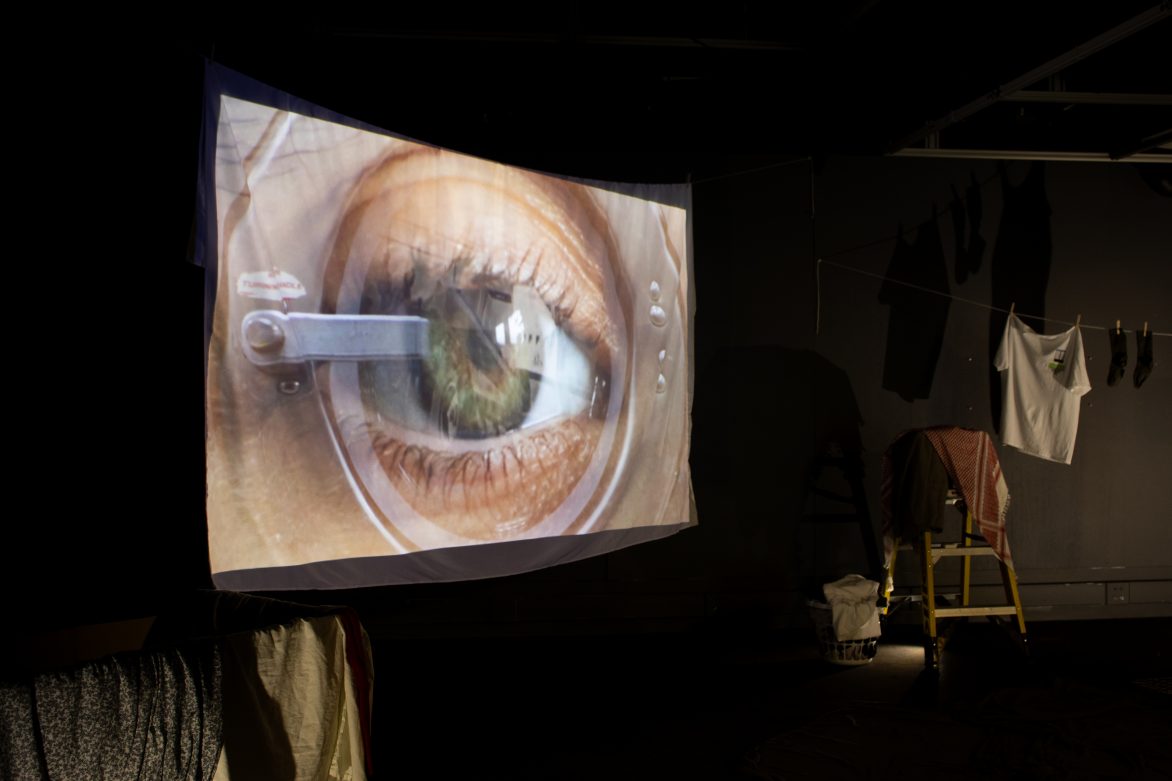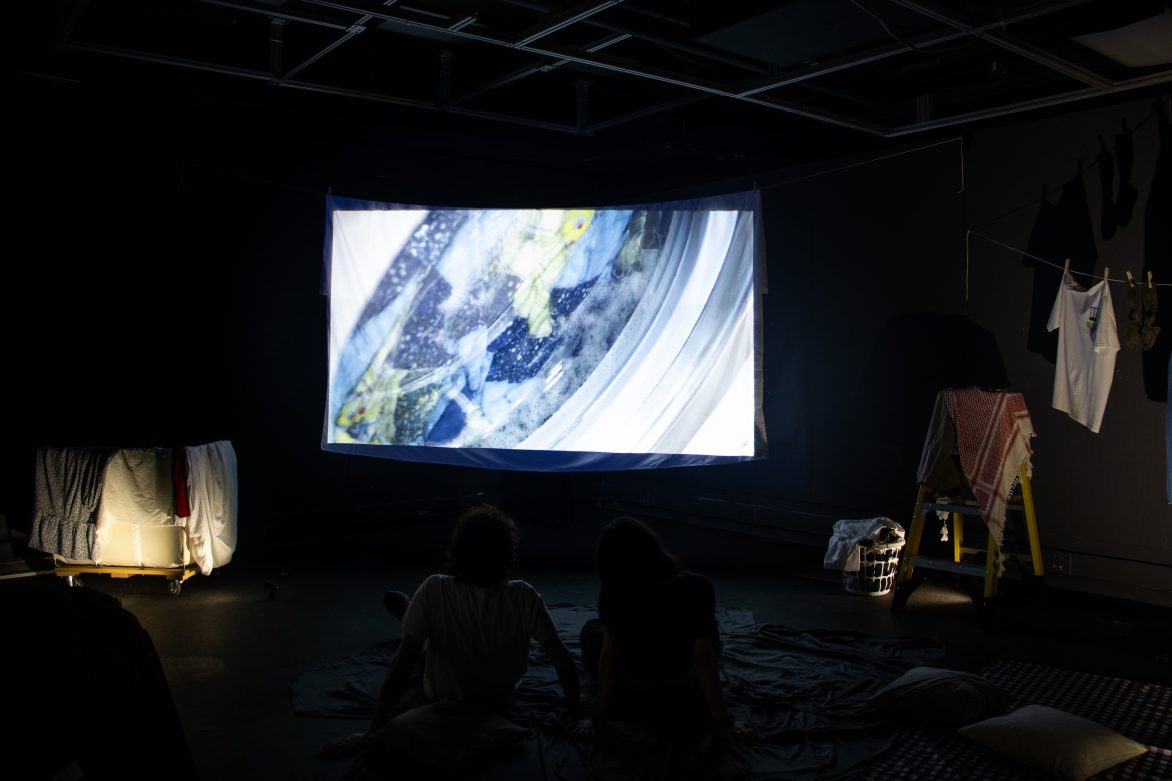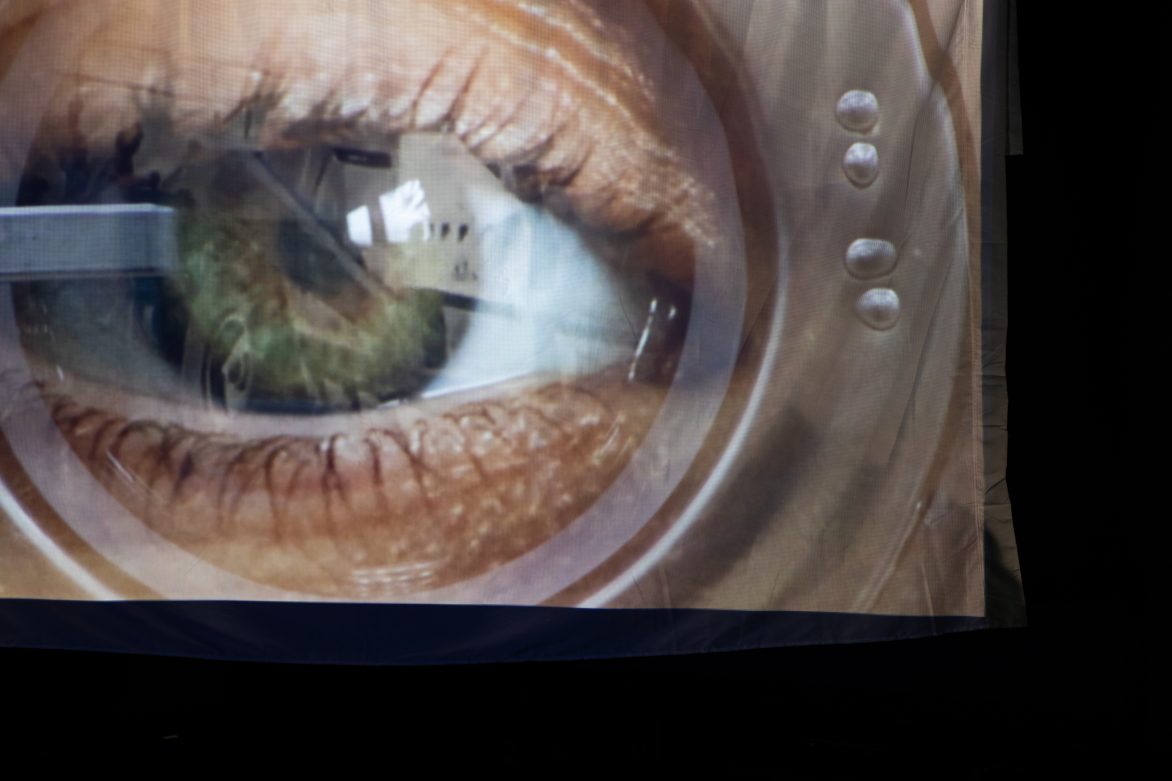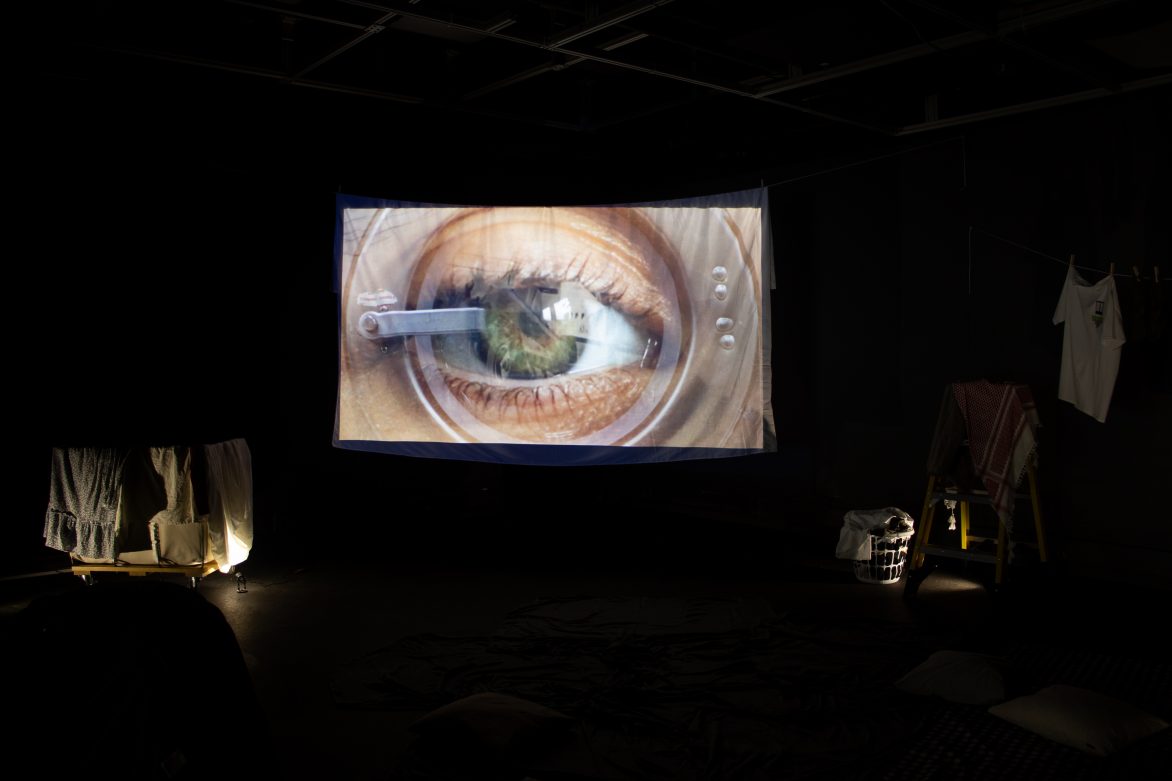Join filmmakers Ghida Anouti, Juan Manuel Chávez, and Hajar Alrifai for a screening of their film, Traveling Laundry Line, at the MIT Museum on Saturday, June 1, 2024 at 12pm. Traveling Laundry Line emerged from an Independent Study that the trio took with ACT Professor Nida Sinnokrot. Previously, they had taken Sinnokrot’s Introduction to Film and Video Course, Aesthetic Revolutions: Crafting Avant-Garde Film & Video.
The event will be introduced by Sarin Gacia Vosgerichian, alumnus from the SMArchS Urbanism program at MIT.
Artist Bios:
Ghida Anouti
Ghida Anouti is a writer, artist, and architect currently finishing a Master of Science in Architecture Studies at MIT. She is interested in narrative-building, visual culture, and acoustemology in relation to the production, reception, and consumption of multisensorial media. Her research at MIT focuses on films as archives of war, acoustic violence, and experimental video-making during and after the Lebanese Civil War. Prior to her candidature at MIT, Ghida obtained a Bachelor of Architecture from the American University of Beirut.
Juan Manuel Chávez
Juan Manuel Chávez is an architect from Mexico City whose evolving practice lingers somewhere in-between design, film, and art. He recently completed a Master of Science in Architecture Studies as a Fulbright-García Robles Grantee.
Hajar Alrifai
Hajar Alrifai is a Syrian-American artist and architectural designer experimenting with poetry, performance, film, and folklore to tell new stories about the built environment. Her thesis project, Echoes from the Stone, is an interdisciplinary meditation and manifesto on building, cultivation, and preservation practices in Syria, explored through creative writing and cinematic intervention.
About the Aesthetic Revolutions: Crafting Avant-Garde Film & Video Course:
Through the crafting of short videos this production course invites students to explore the complexities of avant-garde cinematic practices. Guided by aesthetic strategies aimed at developing conceptual, technical and critical skills, students engage in film screenings and discussions that trace the history of moving images from their origins to the contemporary era, with a specific focus on avant-garde practices. By exploring the aesthetic, technical, and social dimensions of avant-garde cinema, participants develop innovative storytelling approaches that challenge mainstream conventions.
Professor Nida Sinnokrot employs a meticulously crafted pedagogical approach to teaching film and video, designed to guide students through a transformative learning journey. This approach begins with foundational exercises like the Slow Looking, where students engage in silent, black-and-white filmmaking to hone their observational skills and develop a unique visual language. Building on this, assignments such as s push students to explore the dynamic interplay between sound and image, using non-sync sound to create complex psychological spaces and evocative soundscapes.
Further along, assignments like the Portrait of Inanimate Object, Machine, or System encourage students to personify technology, blending personal narratives with creative storytelling to critically examine the impact of technology on their lives. In assignments such as Torn from Time, students delve into the creative potential of collage, mixing archival footage with found media to question and disrupt traditional viewpoints. Finally, in the Repetition, Fragmentation, Degradation, Re-Generation assignment, students revisit and transform their previous works through continuous experimentation, pushing the boundaries of their creative expression to uncover new aesthetic insights.
Through this finely tuned series of assignments, Nida cultivates a rich, immersive learning environment. This environment balances technical proficiency with deep artistic exploration, fostering students’ ability to create films that are both technically excellent and intellectually and emotionally resonant. By guiding students to look beyond the obvious, embrace dissonance, and continuously question and redefine their artistic perspectives, Nida’s teaching methodology ensures that students develop a comprehensive skill set and a profound understanding of the interplay between image, sound, and narrative.











